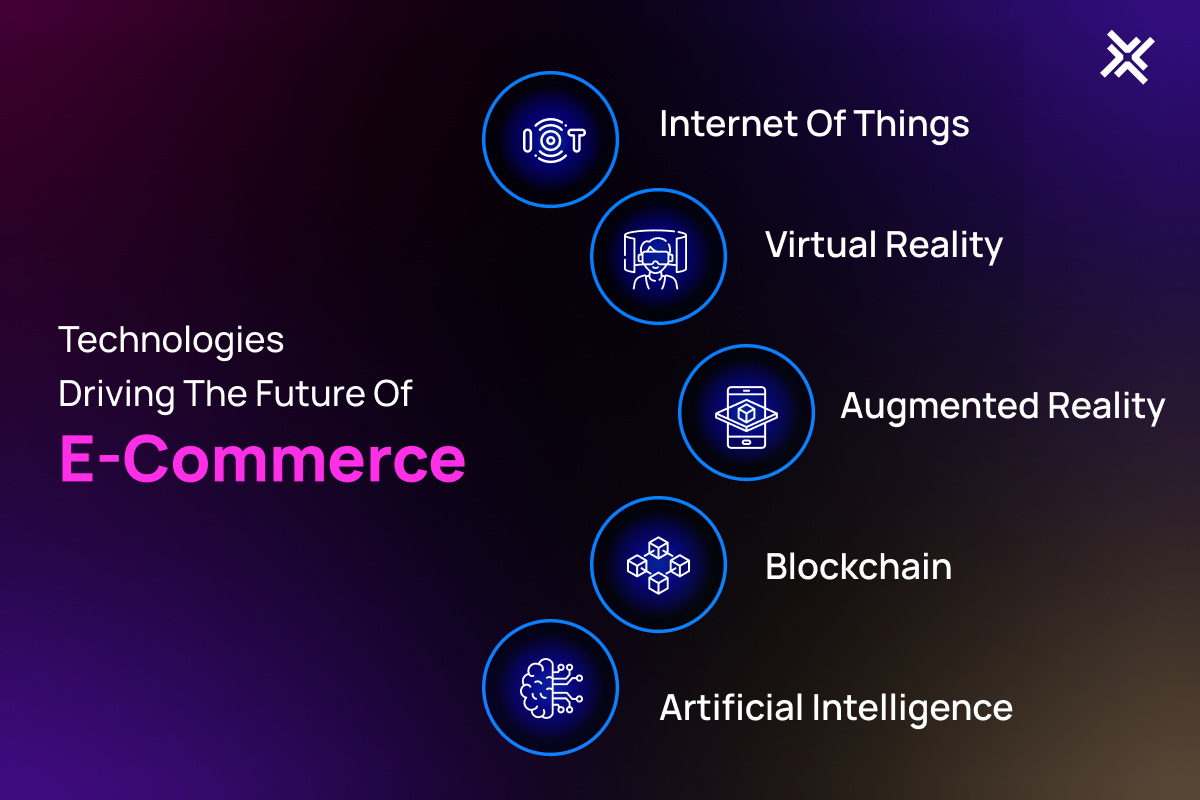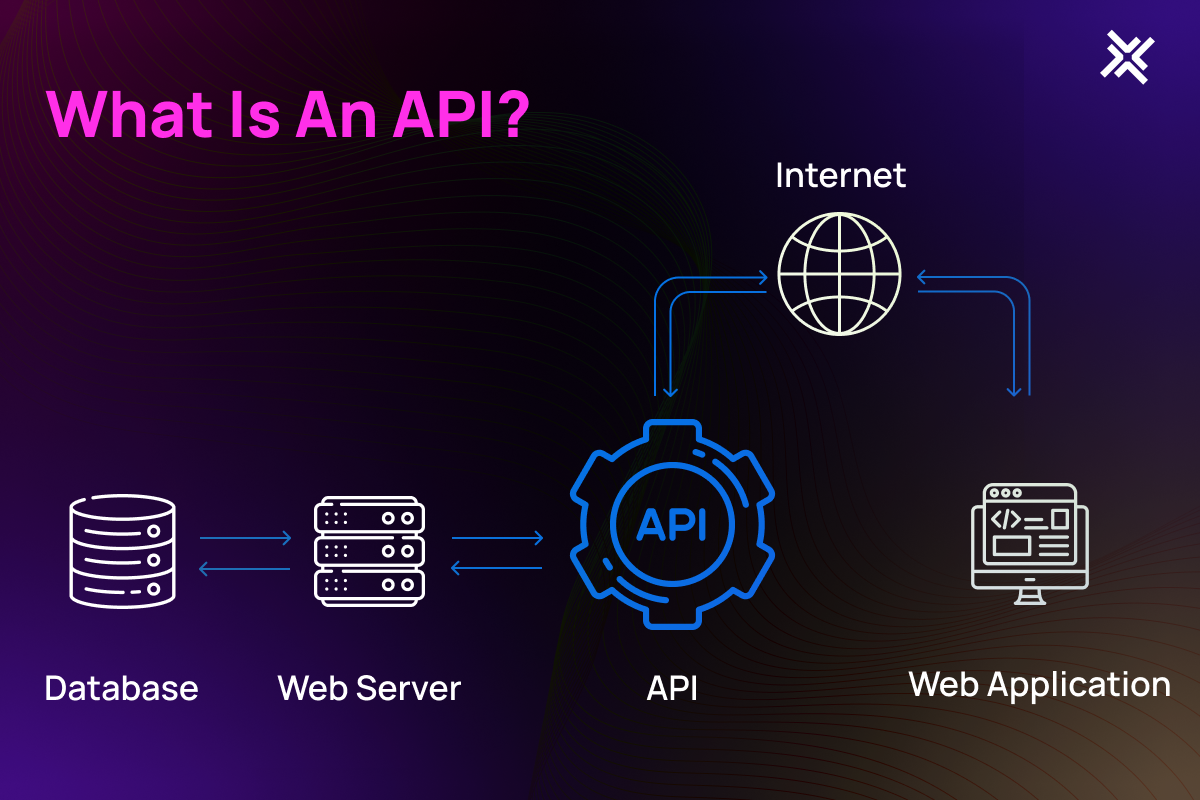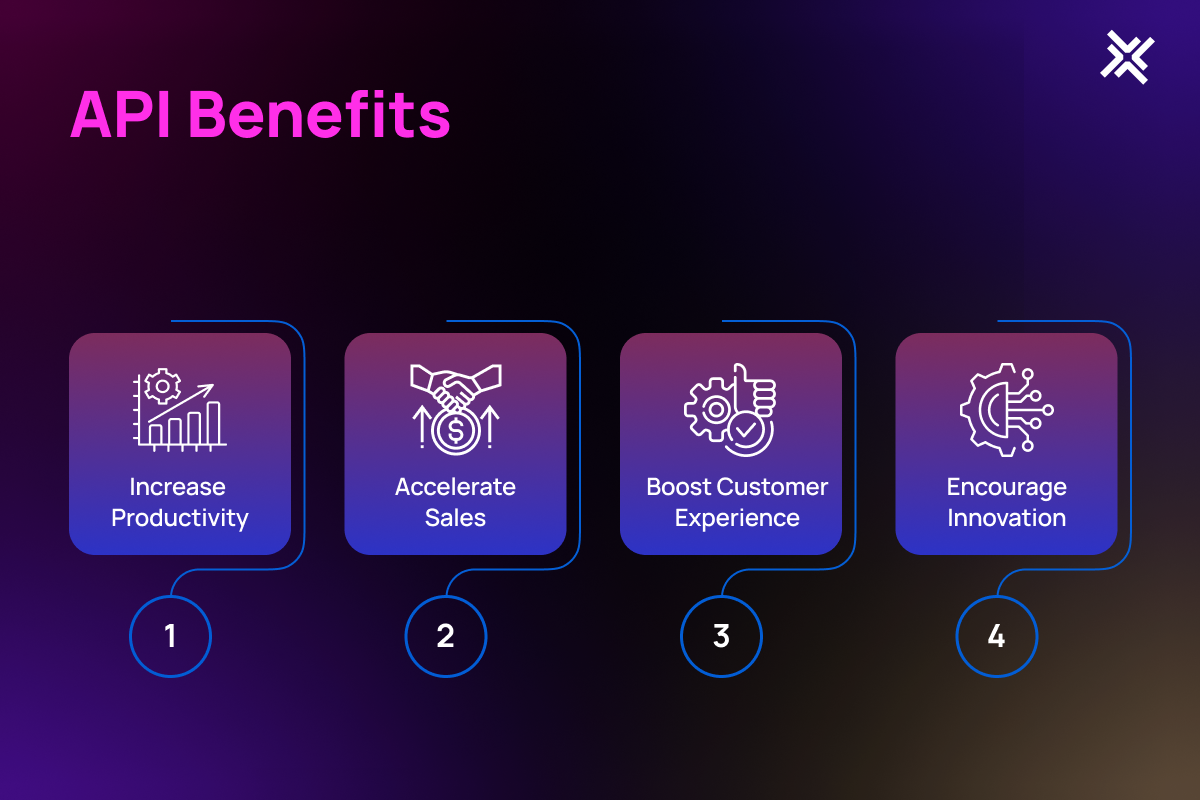Navigating the Future of E-commerce: The Power of API-Based Digital Commerce
February 16, 2024

Ayush Kanodia
.png?w=1920&q=75)
E-commerce needs to change and improve constantly to satisfy the evolving needs and preferences of customers in the digital age. Customers want personalized, easy, and fast shopping experiences across different devices and platforms. Businesses have to deliver content and commerce features that are consistent and engaging at every point of contact with the customer. This is especially true for businesses operating in the UAE, where e-commerce is growing rapidly and customers expect high-quality and seamless online shopping. This leads to businesses looking for e-commerce website solutions in UAE that can help them create and manage their online stores with ease and flexibility. However, this is often challenged by traditional e-commerce platforms that rely on inflexible and outdated architectures. These platforms force businesses to adopt the same front-end and back-end technology, which may not fit their goals or requirements, and reduce their ability to customize and innovate.
This is where API-based digital commerce comes in. API-based digital commerce is a modern approach to e-commerce that separates the front-end and the back-end of the e-commerce platform, using Application Programming Interfaces (APIs) to connect them. They allow data communication between software components. Businesses can use various front-end technologies, such as web, mobile, social, voice, or augmented reality, to offer customized and captivating customer experiences. For enterprises looking to enhance their e-commerce services in UAE, adopting API-based digital commerce can be a strategic move. A robust back-end e-commerce solution, supported by APIs, ensures efficient management of product catalogs, inventory, pricing, promotions, and checkout processes, contributing to a comprehensive and effective online shopping experience.
API-based digital commerce helps businesses to merge content and commerce, connecting to any touchpoint where selling is possible. In the following sections of this blog post, we will examine the mechanics, benefits, and challenges of API-based digital commerce, showing its potential to stimulate growth and innovation in the digital age.
The Changing Face of E-commerce
E-commerce is a thriving and varied sector, with global online sales reaching $4.28 trillion in 2020, and projected to rise to $6.38 trillion this year. Online business covers different kinds and modes of e-commerce, such as B2C, B2B, C2C, or C2B, as well as different types and segments of products and services, such as fashion, electronics, health, education, or entertainment. One of the fastest-growing e-commerce markets is the UAE, where consumers are increasingly opting for online shopping and digital payments. So, opting for an e-commerce development company in UAE can help design, develop, and maintain user-friendly and secure online platforms for various businesses and customers there.

However, e-commerce is also a highly dynamic and competitive industry, influenced by various forces and factors, such as:
- Technology: Online business gets stronger with technology because it provides them the means to build, control, and run. As technology improves, it brings in newer and improved solutions such as cloud computing, artificial intelligence, blockchain, and the Internet of Things.
- Customer behavior: E-commerce is influenced by how customers act, reflecting what online shoppers want. Customer preferences change, so e-commerce has to accordingly offer better customization, simplicity, speed, and usage of multiple channels.
- Market dynamics: The competitive landscape and the growth potential of the online business are shaped by market dynamics, which are the main challenges and opportunities for e-commerce. Market dynamics change and grow all the time, producing new and diverse situations for e-commerce, such as globalization, localization, regulation, or innovation.
These forces and factors create increasing demands and expectations for e-commerce, both from the consumers and the businesses. Consumers want more choice, flexibility, and quality from e-commerce, while businesses want more agility, scalability, and efficiency from e-commerce. Therefore, e-commerce needs to change and improve constantly, to satisfy these demands and expectations, and to stay ahead of the competition. In the context of E-commerce website development in UAE, API-based digital commerce emerges as a modern and flexible approach. This is where developers leverage innovative strategies to enhance the capabilities of e-commerce platforms, meeting the diverse needs of consumers and businesses in the region.
Unveiling the Power of APIs

APIs, or Application Programming Interfaces, are the key elements that make API-based digital commerce possible and effective. APIs are like connectors that link the front-end and the back-end of the e-commerce platform, allowing them to communicate and exchange data with each other, as well as with other external systems and services. The expertise of an E-commerce App Development Company in UAE lies in harnessing APIs as powerful tools that translate and transmit requests, ensuring compatibility and consistency throughout the development process. By leveraging these APIs, businesses can enjoy the benefits of a personalized, efficient, and innovative e-commerce application, precisely crafted to meet the unique demands of the dynamic UAE market.
APIs have many advantages that enable modern and flexible e-commerce solutions, such as:
- Seamless integration: By using APIs, businesses can link their online selling platform to different services like payment methods, data analysis, customer management, or inventory systems. They can do this without changing or redoing their current setup. This makes the online store better and faster, offering secure payments, real-time data, good customer management, and organized inventory and orders.
- Data exchange: With APIs, businesses can seamlessly access and share data from diverse sources, including customer profiles, online history, location, or social media. This capability takes on added significance when considering E-commerce Website Development Services in UAE. These services adeptly harness APIs to integrate and leverage customer data, allowing businesses to showcase tailored offerings across various devices and platforms. In the dynamic landscape of e-commerce in the UAE, this not only enhances customer satisfaction and loyalty but also optimizes the platform's functionality by offering personalized suggestions based on valuable data insights.
- Enhanced functionality: APIs empower businesses to capitalize on the best technologies and tools for their front-end and back-end, allowing customization and optimization based on their unique needs and goals. Whether it's utilizing front-end technologies to showcase products or employing cloud-based, serverless, or microservices-based back-end technologies for essential commerce functions, the possibilities are vast. In the dynamic landscape of the UAE market, APIs serve as the backbone. E-commerce Website Design Services in UAE expertly leverage APIs to curate distinctive and immersive customer experiences, finely tuned to individual preferences and behaviors. This ensures that businesses in the UAE not only stay technologically advanced but also provide unparalleled user experiences through seamless integration.
Advantages of API-Based Digital Commerce

API-based digital commerce has many benefits for businesses that want to succeed in the online market, such as:
Innovation
Online businesses benefit from using APIs because they can test out new features, tools, and connections without affecting how well or safely the platform works. Businesses can quickly and easily check and use new concepts and solutions, using the right technologies for what customers see and what happens in the background. This encourages a way of thinking that values new ideas and creativity, as well as a strong position in the market.
Scalability
When businesses use API-based online selling, they can make their platform bigger or smaller based on how much it's needed, without making the system less stable or reliable. By using cloud-based systems in the background, businesses can get as many resources and storage as they need and only pay for what they use. Also, API-based online selling makes it faster and easier to try out and put new features or updates in place. With the help of an on-demand app development company in UAE, businesses can take advantage of this flexibility and scalability to create and launch customized and high-quality apps for various online selling niches, such as food delivery, grocery shopping, taxi booking, or beauty services.
Improved Customer Experience
With API-based online selling, businesses can make sure customers get the same personalized experiences on different devices and platforms, creating a smooth and all-in-one shopping journey. By using APIs, businesses can access and analyze data from various sources to offer relevant and timely content and offers, increasing customer satisfaction. Additionally, API-based digital commerce improves the performance and speed of the platform, reducing loading times and errors, and enhancing customer convenience and trust.
Some examples of successful businesses that have leveraged API-based solutions are:
- Spotify
Spotify, a popular music streaming service, connects its front-end apps to its back-end cloud system using APIs. This is where it holds and processes millions of songs and playlists. Spotify also uses APIs to work with other platforms and services, like Facebook, Twitter, or Google. This allows users to share and discover music and get personalized suggestions and insights. - Netflix
The popular online video streaming service, Netflix, relies on APIs to provide users with excellent and tailored content on various devices like websites, mobiles, or smart TVs. Netflix also utilizes APIs to link with its back-end cloud system, where it organizes and studies massive data sets, including user likes, ratings, or what they've watched before. This information helps Netflix offer personalized recommendations and enhance its collection of shows and movies. - Amazon
Amazon, a massive worldwide online retailer, depends on APIs to run its main website and mobile apps. These platforms display and sell millions of products and services. APIs are also used for Amazon's back-end cloud system, which takes care of important business tasks like managing inventory, processing orders, handling payments, and coordinating deliveries. Amazon also uses APIs to connect with other platforms and services, like Alexa, Prime, or AWS, giving customers and partners access to a range of useful features.
Challenges and Considerations
API-based digital commerce is not without its challenges and considerations. Businesses that want to adopt this approach need to be aware of the potential issues and risks that may arise and plan accordingly. Some of the common challenges and considerations are:
Security
Using APIs means letting external systems and services interact with the online store, but that can bring security issues. To stay safe, businesses need to make sure their APIs are secure and protected from unwanted access, data leaks, or harmful attacks. This might involve using encryption, authentication, authorization, and keeping a close watch on things. It's also important to follow the rules and standards that apply, such as GDPR or PCI DSS. To ensure the best security practices and compliance, businesses can hire e-commerce web developers in UAE who have the expertise and experience in working with APIs and online selling platforms.
Integration complexities
With APIs, businesses can connect their online store to other services and apps from different companies. These services and apps might use different technologies and ways of organizing information. Businesses must ensure that their APIs work well with these outside systems and services and can efficiently exchange data and communicate effectively. This might require designing, testing, and taking care of the APIs, and fixing any mistakes or issues that might occur.
Potential resistance to change
Switching to API-based online selling means businesses have to change the way they think and do things. They need to be more open and flexible in how they do online business. Businesses have to get over any hesitation or resistance to these changes. They also need to teach and train the people involved, like developers, marketers, or customers, about the good things that come with API-based online selling. This might mean having a clear plan and strategy and offering help and advice, to make it easier for everyone to get used to and start using API-based online selling.
Best Practices for Implementing API-Based Digital Commerce
Getting into the world of API-based online selling needs a good plan, and doing things the best way can make it smooth and successful. Businesses eager to harness the power of APIs should think about these important factors:
- Strategic API Partnerships: Pick your API partners carefully. Choose partners that match your business goals and add value to what you do. Think about things like trustworthiness, ability to grow, and if they can support what you need. A good partnership makes sure you have a strong base for your API-based digital commerce journey. When looking to enhance your e-commerce platform in the UAE, it's crucial to Hire E-commerce App Developer in UAE who understands the local market dynamics and can tailor solutions to meet your specific needs. The right developer can play a pivotal role in optimizing your API integration for seamless and efficient digital commerce operations.
- Compatibility and Integration: Ensure compatibility between your existing systems and the chosen APIs. A seamless integration process is crucial for the success of API-based digital commerce. Prioritize APIs that effortlessly connect with your front-end and back-end technologies, reducing complexities and streamlining operations.
- Scalability Planning: Plan for getting bigger right from the beginning. When your business gets larger, more people will use your platform. Choose APIs and systems in the background that can easily get bigger to handle more people and changing needs. Growing easily is an important part of making sure your online selling setup stays good in the future.
- Security Measures: Put security first in your API-based digital commerce strategy. APIs connect your platform to outside systems, so keeping things secure is important. Put strong locks on with encryption, authentication, and permission measures to protect against people getting in without permission, leaks of information, and possible dangers. Follow the rules to keep data safe.
- User-Friendly Documentation: Having clear and accessible documentation is important. Make sure that developers can easily understand and use the APIs with detailed documentation. This not only makes it faster to put everything together but also makes it easier to keep things working and fix any problems.
- Testing and Quality Assurance: Thorough testing is really important. Before fully deploying your API-based digital commerce solution, conduct thorough testing to identify and rectify any potential issues. This includes checking if everything works well together, handling lots of use at once, and looking at how everything performs overall. This makes sure customers have a smooth and trustworthy experience.
- Continuous Monitoring and Adaptation: Implement monitoring mechanisms for ongoing assessment. Regularly check how the APIs are doing in terms of performance, security, and how users experience things. Be ready to change and make things better based on what you see in real-time and how your business needs might change.
By adhering to these best practices, businesses can confidently latch onto API-based digital commerce, tapping into the full potential of this modern approach and ensuring a customer-centric, innovative, and scalable e-commerce experience. Ready to elevate your online presence in the UAE? Look no further. Our expert E-commerce Developers at WDCS are here to make it happen. Hire E-commerce Developers in UAE today, and let us be your trusted partner in crafting an exceptional online journey for your customers, ensuring lasting success in the competitive market.
Navigating the Future of E-commerce: The Power of API-Based Digital Commerce Harness avant-grade technologies for your eCommerce platform
The future of eCommerce looks brighter than ever with a myriad of advanced technologies influencing the industry. At WDCS, we leverage these technologies to provide comprehensive eCommerce solutions.